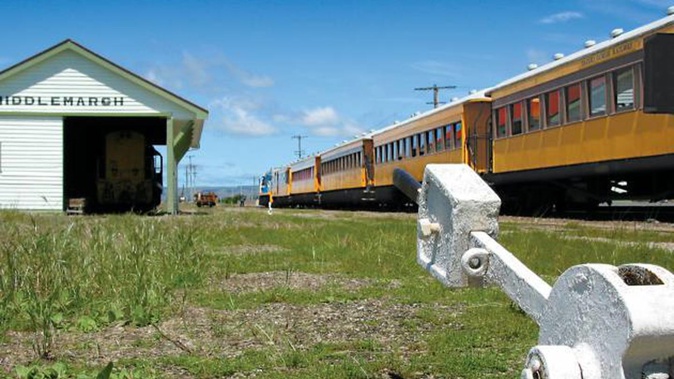
The chairman of Dunedin Railways has hit back at the backlash to the planned sale of heritage railway assets, saying, "We're not a museum".
The Dunedin City Council-owned company announced the start of a sale process for a variety of heritage items on Tuesday and the news was immediately met with shock and concern from some.
Yesterday, Otago Excursion Train Trust chairman Murray Schofield wrote to Dunedin city councillors, Dunedin Mayor Aaron Hawkins, council chief executive Sandy Graham, and Dunedin Railways chairman Keith Cooper to oppose the sale.
Sale items include 100-year-old wooden heritage carriages, a diesel-electric locomotive built in the 1950s, and the body of a locomotive that was the first from its class to arrive in New Zealand.
Six steel-clad carriages built around 1940 and in need of refurbishment, as well as a guard's van, including a petrol generator, could also be sold.
Cooper yesterday said it made no sense for Dunedin Railways to pay for the storage and maintenance of something the company knew was surplus.
Not only would the company never need the assets, it did not have the money to upgrade them.
"We're not a museum. We're not charged with preserving assets that we don't need for the future," Cooper said.
"It's nonsensical to us to keep assets and potentially spend money on them, which we don't need and which have more value to community organisations that want these things."
Schofield said as a low-cost option the assets could be stored at the Sutton railway station in Central Otago, away from the damp, salty conditions in Dunedin.
Alternatively, they could be stored at another railway, such as Oamaru Steam and Rail until they were put into use.
He said the claim the wooden carriages were unsafe for operations was "not totally accurate nor true".
Carriages not certified to operate on the mainline could be recertified and used if they were made to comply.
In 2020, as passenger numbers seemed sure to crash amid Covid-19, Dunedin Railways was put into hibernation and only limited services have been provided since.
Schofield said at the time of mothballing the carriages were compliant.
"I would also like to remind you all that the Otago Excursion Train Trust has placed forward an option to retain all assets, to operate and manage the railway for Dunedin until a long-term decision has been made.
"However, no communication has been reciprocated from [parent company] Dunedin City Holdings nor the chief executive for future discussions," Schofield wrote.
Cooper also pushed back at the accusations of inaccuracies in company communications about the sale.
Based on the briefings company directors had from their experts, he would not ride in the wooden carriages, "let alone would I want to be a director of a company that charged passengers to go on them".
The company was retaining its ability to run tourism ventures to Taieri Gorge and there were others in the community that wanted the assets for heritage collections, so the sale could produce a "win-win".
"Don't forget we're running a loss-making business.
"It's costing us around $2million a year in straight-up losses to keep what we deem as suitable for the business to run," Cooper said.
Hawkins said the company was within its rights to sell the assets without councillor approval, but councillors had also given a clear direction that they wanted the railway assets maintained as part of the hibernation process.
He had asked Cooper for clarity as to whether the assets were in fact unsuitable for use on KiwiRail tracks, whether they were certified for use at the time of hibernation in 2020, and whether there were similar examples in use on KiwiRail lines elsewhere in the country.
What was clear from the reaction to the planned sale was that Dunedin's heritage assets, both fixed and moving, were of great importance "to council, as they are to our community".
"We also know there are heritage groups in the community that could put these items to sympathetic re-use – and who would be able to through this process," Hawkins said.
Take your Radio, Podcasts and Music with you









